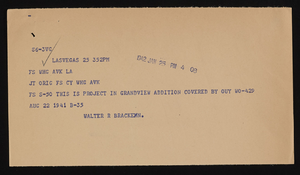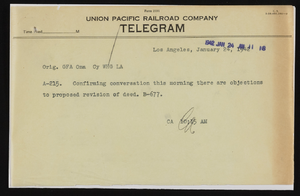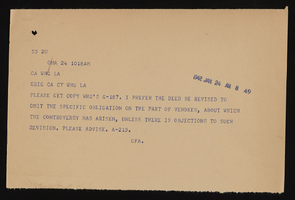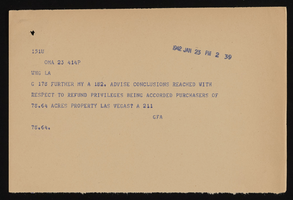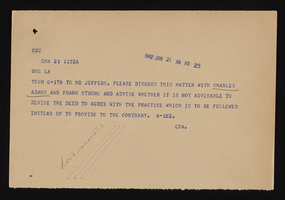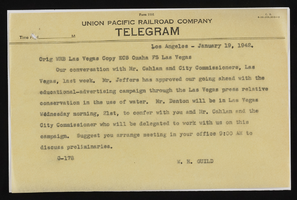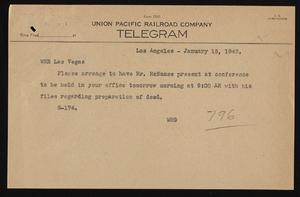Search the Special Collections and Archives Portal
Search Results
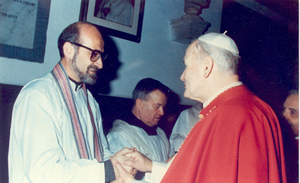
Don Gianni Novelli greets the Pope: photographic print
Date
1985-12
Archival Collection
Description
Inscription on the back of the photo: "Don Gianni Novelli, salute il Papa, Dopo la Concelebrazione, and Nella Chiesa Di S. Marco in The Vatican December 1985" which translates to: "Don Gianni Novelli, greets the Pope, after the celebration, and in the Church of S. Marco in the Vatican December 1985."
Image
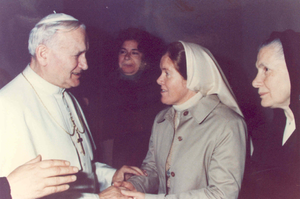
Sister Clara Bachiega presents to the Pope: photographic print
Date
1985-12
Archival Collection
Description
Pope John Paul II is on the left. Inscription on the back of the photo reads: "Suor Clara Bachiega presenta Al Papa le Attivita Del Centro at the Vatican December 1985" which translates to: "Sister Clara Bachiega presents the activities of the Center to the Pope at the Vatican December 1985."
Image
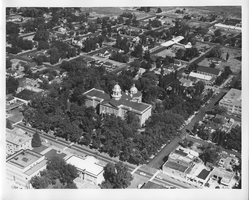
Aerial view of the Nevada Capitol building: photgraphic print
Date
1880 to 1979
Archival Collection
Description
Dorothy Bell Scans UNLV-Public Lands Institute. Copyright stamp on back: "Photo by John Nulty."
Image
Pagination
Refine my results
Content Type
Creator or Contributor
Subject
Archival Collection
Digital Project
Resource Type
Year
Material Type
Place
Language
Records Classification

